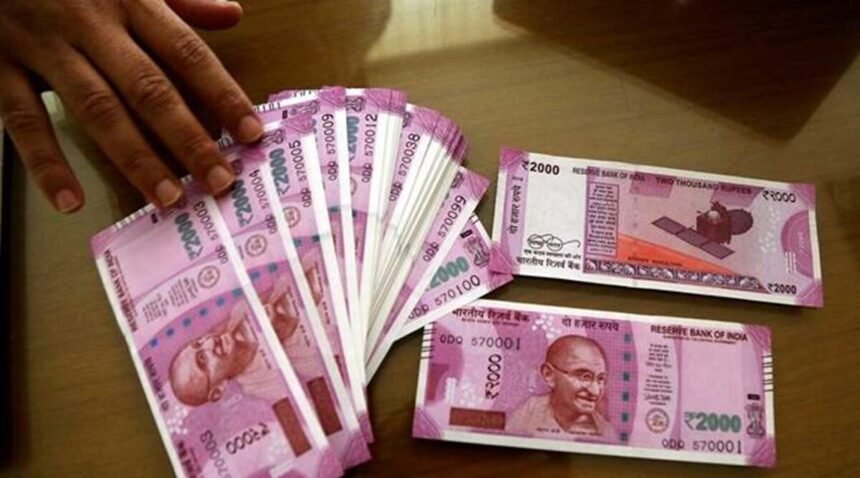The Reserve Bank of India (RBI) has announced that 76 percent of the Rs 2,000 currency notes in circulation have either been deposited or exchanged at banks. The central bank has urged the public to promptly turn in the remaining notes before September 30.
In terms of value, the circulation of Rs 2,000 notes has reduced from Rs 3.56 lakh crore to Rs 84,000 crore as of June 30 since the withdrawal announcement on May 19.
The RBI stated that out of the notes returned, 87 percent have been deposited in bank accounts by the public, while the remaining 13 percent have been exchanged for other denominations.
The demonetization of the Rs 2,000 currency notes is part of the government’s efforts to combat black money and promote a digital economy. This move has been a significant step towards curbing the circulation of counterfeit currency and deterring illegal activities involving unaccounted cash.
The substantial decrease in the circulation of Rs 2,000 notes indicates a successful implementation of the demonetization initiative. The public’s cooperation and adherence to the RBI’s guidelines have played a crucial role in achieving this outcome.
The RBI’s deadline for the exchange or deposit of the remaining Rs 2,000 notes is September 30. Individuals who still possess these notes are advised to visit their nearest banks or authorized branches to complete the necessary transactions within the specified timeframe.
The central bank has ensured that ample banking facilities are available to accommodate the exchange or deposit of the remaining notes. To avoid any inconvenience, individuals are encouraged to plan their visits to the banks accordingly.
Moreover, the RBI has emphasized that after the deadline, the remaining Rs 2,000 notes will only be accepted at designated RBI offices. Therefore, it is essential for individuals to take prompt action and utilize the existing banking infrastructure to complete the necessary transactions.
By recalling the Rs 2,000 notes, the RBI aims to streamline the circulation of currency and encourage the usage of smaller denominations. This move is expected to facilitate day-to-day transactions and simplify the overall payment ecosystem.
Additionally, the RBI has been promoting digital payment solutions and encouraging the public to adopt cashless transactions. These efforts align with the government’s vision of creating a less-cash economy and promoting financial inclusion.
The successful withdrawal and exchange of a significant percentage of the Rs 2,000 notes in circulation demonstrate the public’s cooperation and trust in the banking system. The efficient management of this demonetization process by the RBI has played a vital role in ensuring a smooth transition.
The RBI’s announcement regarding the circulation of Rs 2,000 notes highlights the substantial progress made in the demonetization process. With 76 percent of the notes either deposited or exchanged, the central bank urges the public to complete the remaining transactions before September 30. This initiative is an essential step in curbing black money and promoting a digital economy while fostering financial inclusion and convenience for all citizens.



